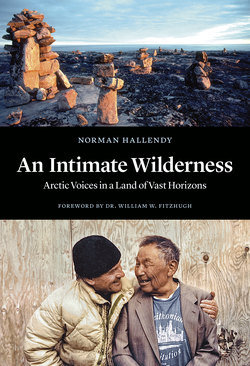Читать книгу An Intimate Wilderness - Norman Hallendy - Страница 18
На сайте Литреса книга снята с продажи.
ОглавлениеBY THE LIGHT OF A SEAL OIL LAMP
I shared too brief a time with Kananginak, one of the few people with whom I never had the opportunity to go out on the land. Yet he was a close friend for more than 45 years, a confidant who, without hesitation, shared his thoughts, concerns, and perspectives on life with me. Kananginak represented that generation of Inuit in southwest Baffin who had been born on the land and were exposed briefly to the traditional way of life. Missionaries were still strangers, the angakkuit (shamans) were still to be respected, and outboard motors and snow machines were things of the future. Settlements and nursing stations had yet to be created, and no radio links existed from village to village.
Kananginak was born in a hut lit by a seal oil lamp in a camp reached by dogsled in winter and kayak or canoe in summer. He was born at a time when it was believed that shamans could fly to the moon; later in life, he watched men landing on the moon from the comfort of his home in Cape Dorset, which was heated by oil from Venezuela.
Kananginak’s father, Pootoogook, was the most respected man throughout the Baffin Island region. From the earliest times, qallunaat (white people), including officials travelling along the Sikusiilaq (southwest Baffin) coast, would stay at Pootoogook’s camp. Kananginak once told me, “All qallunaat were big and scary to me.”
I was baptized by a missionary and learned how to smile and be very pleasant to the big men [RCMP] who were sent here to keep us good. They always seemed to know about any wrongdoings, so we smiled a lot. There were some grumpy qallunaat, but they were not scary because their behaviour was predictable. The scary ones were those who showed no expression.
In the early days Inuit working for the qallunaat were not paid money. They were given about two days worth of food for six days of work. When country food was scarce, they had to make two days of food last a week. Once you started working, you could no longer go hunting like in the old days. More and more people became dependent on having flour, lard, sugar, baking soda, tea, and other goods from The Bay [Hudson’s Bay Company]. No work, no food. You couldn’t buy much when you only got 50 cents for a seal skin.
Things were so tough in the early days that some people returning to their camp with goods from The Bay would pass by other camps in the middle of the night so as not to be noticed. Some people came to our camp at Ikirasaq to get food rather than go to The Bay. Country food was much healthier. My older brothers would work at ship time to be able to get the things we could not make, like bullets, needles, and other special things from the South.
I experienced difficulty when it came time to support myself. It was the time when the dogs were being killed. It was the beginning of my adult life and yet I could not raise my own dogs, I could not have a strong dog team. The best dogs were the most aggressive dogs and they were the first to be destroyed. We were told it was because they were a threat to humans. Then the others were destroyed because we were told that they were diseased. The destruction of the “real” dogs was the destruction of a strong breed that helped us to survive for generations. When you think of it, the destruction of the dogs and the replacement of sleds with snowmobiles took away our strength forever. We lost our endurance. I can remember when we walked great distances, when we could lift huge stones or haul sleds loaded with food for days and my brothers and I did such things long ago.
The year before you came to Kinngait [1957], I was living permanently in settlement. I was quickly losing the strength in my body and in my way of thinking. My thoughts were no longer shaped by living on the land but by a ready made lifestyle. Because we began to live like you, we began to behave like you, and in many ways we have become like you. You asked me what would have happened to our lives if the qallunaat had never come north. The answer is simple: We would have continued to live the only life we knew.
The small kudlik that can be carried on long journeys.
When I think about the future I also think about the past. I remember when giving thanks at feasts, we faced each other. Now when we pray, we look at the back of another person’s head. We are losing things along the way. We’re losing traditional knowledge about a world known to our ancestors. We seem to be losing our ability to live in harmony with one another. Perhaps if we’re not careful, we’ll even lose those adopted beliefs that have replaced our traditional ones.
I think that living in the future will be so different from the past that it is beyond our imagination. Perhaps the future is that time when the present, yours and mine, is thought of as just another fairy tale.
Pitaloosie Saila, my “little sister”, a wonderful artist from Kinngait (Cape Dorset).
